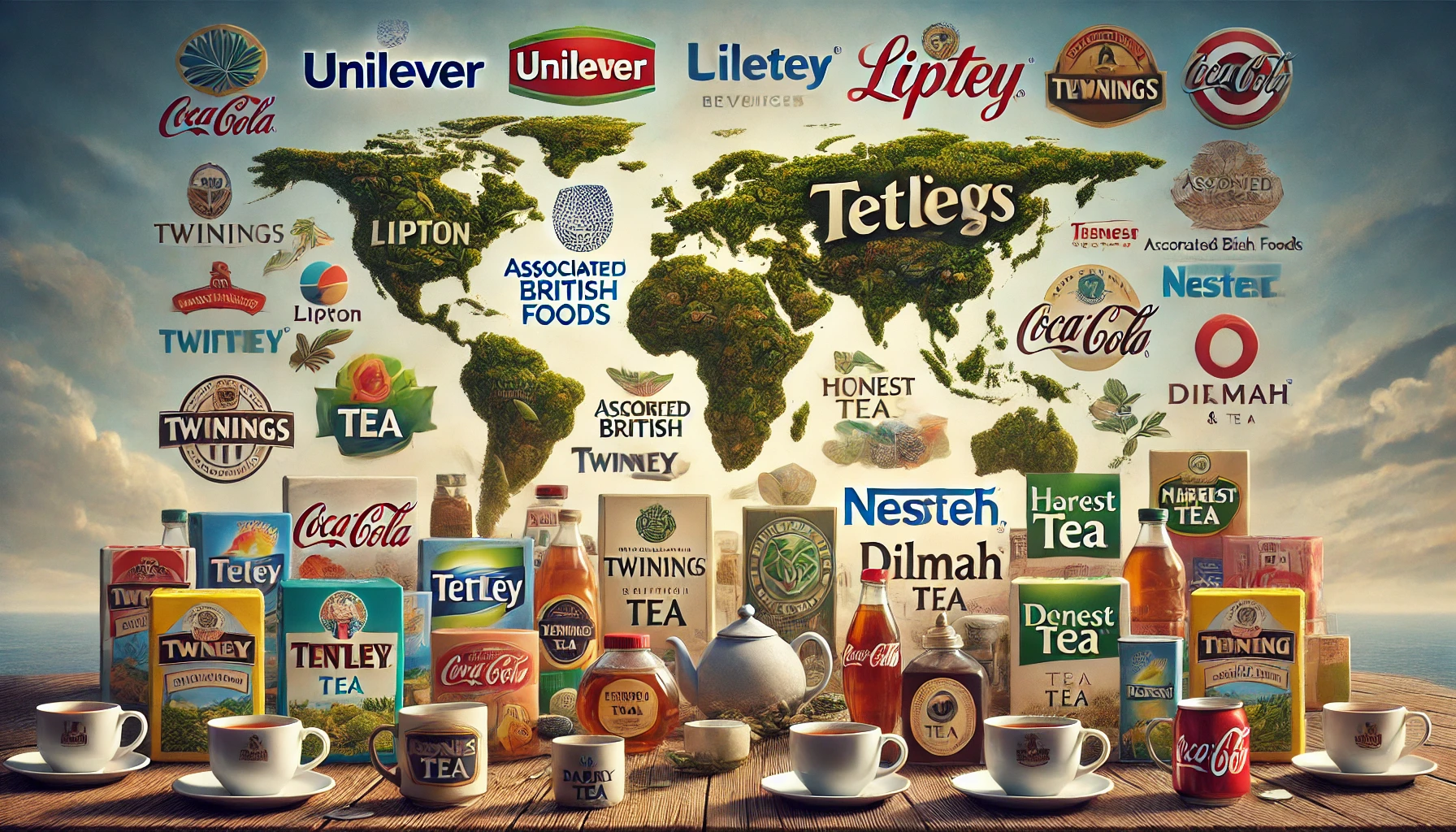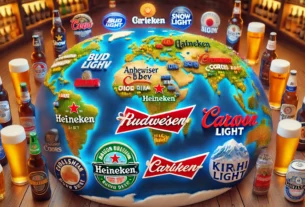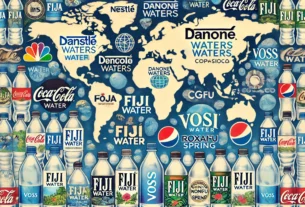Tea is one of the most widely consumed beverages globally, and several major companies have established themselves as leaders in this market. This report provides an in-depth look at the largest tea companies in the world, detailing their key brands, market strategies, and global influence.
1. Unilever
Overview
Unilever, a British-Dutch multinational, is one of the largest tea companies globally through its extensive portfolio of well-known tea brands.
Key Brands
- Lipton
- Brooke Bond
- PG Tips
Market Strategy
Unilever’s strategy includes strong brand recognition, innovative product offerings, and a focus on sustainability. The company invests in ethical sourcing and sustainable farming practices to meet consumer demand for environmentally responsible products.
2. Tata Global Beverages
Overview
Tata Global Beverages, an Indian multinational, is a leading player in the global tea market with a wide range of popular tea brands.
Key Brands
- Tata Tea
- Tetley
- Good Earth
Market Strategy
Tata Global Beverages emphasizes quality, innovation, and sustainability. The company focuses on expanding its international footprint and developing health-oriented tea products to cater to evolving consumer preferences.
3. Associated British Foods (ABF)
Overview
Associated British Foods, a British multinational, has a significant presence in the tea market through its subsidiary, Twinings.
Key Brands
- Twinings
- Ovaltine (tea-based products)
Market Strategy
ABF’s strategy involves premium positioning, product innovation, and strong marketing campaigns. Twinings is known for its high-quality tea and extensive product range, catering to both traditional and modern tea drinkers.
4. The Coca-Cola Company
Overview
The Coca-Cola Company, primarily known for its soft drinks, has a substantial presence in the tea market through its ready-to-drink tea brands.
Key Brands
- Honest Tea
- Gold Peak
- Peace Tea
Market Strategy
Coca-Cola’s strategy includes leveraging its extensive distribution network, strong marketing efforts, and focus on health and wellness trends. The company invests in product innovation and sustainability to meet growing consumer demand for healthier beverages.
5. Nestlé
Overview
Nestlé, a Swiss multinational, is a major player in the global tea market with a range of popular tea brands.
Key Brands
- Nestea
- Sweet Leaf Tea
- Tazo (licensed products)
Market Strategy
Nestlé’s strategy includes product diversification, strong branding, and sustainability. The company focuses on developing innovative tea products and expanding its presence in emerging markets.
6. Harney & Sons
Overview
Harney & Sons, an American tea company, is renowned for its premium quality tea and artisanal approach.
Key Brands
- Harney & Sons
Market Strategy
Harney & Sons emphasizes high-quality ingredients, unique blends, and premium packaging. The company targets discerning tea drinkers and maintains a strong presence in upscale retail and hospitality sectors.
7. Dilmah
Overview
Dilmah, a Sri Lankan family-owned company, is known for its commitment to quality and ethical practices in the tea industry.
Key Brands
- Dilmah
Market Strategy
Dilmah’s strategy revolves around single-origin tea, sustainability, and ethical sourcing. The company focuses on providing high-quality, fresh tea while supporting community development and environmental conservation.
8. Barry’s Tea
Overview
Barry’s Tea, an Irish company, is a leading tea brand in Ireland with a growing international presence.
Key Brands
- Barry’s Tea
Market Strategy
Barry’s Tea emphasizes quality, tradition, and strong brand loyalty. The company focuses on maintaining its reputation for high-quality tea and expanding its presence in international markets.
Conclusion
The largest tea companies in the world have built their market positions through strong branding, innovative products, and a commitment to sustainability. As consumer preferences continue to evolve, these companies are adapting by introducing new products, focusing on ethical sourcing, and expanding their global reach. This ensures their continued leadership and influence in the global tea industry.



